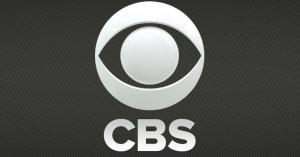On Sunday night leaders in the U.S. Congress unveiled the new coronavirus relief deal that they expect to pass on Monday. The negotiations yielded a $900 billion stand-alone stimulus deal, as well as a $1.4 trillion government funding bill that includes some COVID-19 aid measures as well. The deal includes both a direct stimulus check and unemployment aid.
Both the Democrat-controlled House of Representatives and the Republican-controlled United States Senate are expected to pass the new stimulus deal on Monday, according to a report by Politico. This comes after seven months of failed negotiations for more coronavirus aid, while other countries around the world established robust protocols for the pandemic. Congress has already extended its own deadline three times now to get this aid passed, and even then the compromises were hard-fought. For many struggling Americans, any aid is better than nothing at this point.
Videos by PopCulture.com
The new package does not measure up to the $2.2 trillion CARES Act passed in March — let alone the HEROES Act proposal that once reached a price range of $3.5 trillion. However, it does not fall as low as some Republican proposals over the last few months either, which dipped below $500 billion at times.
This package was made with the intention of holding Americans over until President-elect Joe Biden takes office next month, as Republicans are bracing for his push towards another large-scale stimulus package. Many Americans are counting on that as well. Here is a look at what is coming in the new deal on Monday.
Stimulus Checks

The deal includes a stimulus check with the same qualification rules as the CARES Act, but for half the money. So, taxpayers making $75,000 per year or less will receive a $600 stimulus check, while couples filing jointly will receive $1,200. Another $600 will be offered for dependent children. This round has also loosened restrictions on immigrant taxpayers.
Unemployment
The new bill revives federal unemployment enhancements through March 14. Once it is passed, those collecting unemployment will receive an extra $300 per week rather than the $600 per week offered in the spring. This also applies to the self-employed, gig workers and those who have exhausted their state benefits.
Testing, Tracing & Vaccines

Lawmakers have allocated $20 million for the purchase of vaccines, another $9 billion for vaccine distribution and about $22 billion to fund testing, tracing and coronavirus mitigation programs. That money will go to states, who operate those programs individually.
Housing
This bill includes $25 billion in federal rental assistance, and extends the federal eviction ban through the end of January. Notably, $800 million out of this fund is directed specifically to Native American housing entities, which have been hit particularly hard by COVID-19.
Schools & Childcare

A total of $82 billion from this bill will go to colleges and universities, though about $54 billion of that is specifically meant for public K-12 schools. About $23 billion is going to higher education, while over $4 billion has been designated a “governors’ relief fund.” A separate $10 billion in emergency funding will go to the child care sector.
Higher Education Loan Forgiveness
A bipartisan agreement for targeted college loan forgiveness made its way into this bill. It will forgive just under $1.3 billion in federal loans to historically Black colleges and universities, as direct student loan forgiveness itself looms on the horizon. It also allows incarcerated students to receive Pell grants for the first time in 26 years, and simplifies some financial aid applications and forms.
Small Business Aid

Small businesses will see a $325 billion slice of this stimulus deal. That includes $284 billion in loans through the revived Paycheck Protection Program (PPP), though it is unclear how that controversial program may have been revised. The bill also offers $20 billion for businesses in low-income communities, and $15 billion for live entertainment venues, movie theaters and museums.
Transportation Aid
A total of $45 billion is going to transportation industries as Americans hunker down in self-isolation. That includes $15 billion for airline companies’ payroll, $14 billion for mass transit, $10 billion for state highways, $2 billion for airports and $1 billion for Amtrak.
Food Security & Agriculture Aid

The food stamp benefits program will get a $13 billion boost under this legislation — a 15 percent increase, although that does not extend to the SNAP program. Meanwhile, farmers and ranchers will get $13 billion in direct payments to make up for losses during the pandemic.
Military Raises
The government funding bill gives a 3 percent raise to military personnel.
Corporate Tax Breaks

The stimulus bill allows businesses to make big tax deductions and offers employee retention credits for those that do not lay off workers. Companies can write off expenses associated with their forgiven PPP loans, and a number of temporary tax breaks from the previous stimulus programs will be extended — for years in some cases.
President Donald Trump reportedly fought particularly hard for a two-year tax break for business meals. Another extension is a payroll tax subsidy for employers who offer paid sick leave. This bill also boosts the Earned Income Tax Credit even higher.
Broadband
Lawmakers agreed to invest $7 billion to increase broadband internet access for students, families and unemployed workers here. The bill would provide $300 billion for rural broadband, and $250 million for telehealth programs.
Other Provisions

A number of other smaller programs made their way into these bills, with smaller targets. One provision extends a CARES Act program allowing contractors to keep employees on their payroll even if the federal facilities they service are closed, while another allows citizens of the Marshall Islands to sign up for Medicaid.
Yet another provision in the spending bill protects Americans from “surprise medical bills,” ending a long-time fight by retiring Sen. Lemar Alexander of Tennessee. The bill also maintains the existing budget for Trump’s southern border wall project, and reauthorizes bills that need a yearly review at the federal level. That includes a new water infrastructure package that found its way into the negotiations.
At the time of this writing, Congress is expected to pass this bill as it is on Monday. For information on stimulus program eligibility, visit the IRS’ website.








